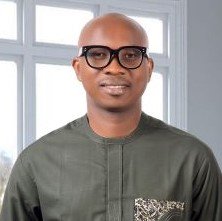Unlocking Transformative Impact in Africa: The Power of Farreach Theory and the Farreach 1 Toolkit
In the ever-evolving landscape of international development, practitioners are constantly in search of frameworks that not only guide interventions effectively but also foster sustainable, locally driven change. Amidst the complex realities of Africa’s development context—marked by vibrant communities, dynamic economies, and persistent structural challenges—one approach is quietly revolutionizing the way we think, plan, and act: Farreach Theory and its practical companion, the Farreach 1 Toolkit.
What is Farreach Theory?
Farreach Theory is a next-generation development framework grounded in systems thinking, behavioral science, and African contextual realities. It’s designed to tackle root causes, not just symptoms. At its core, Farreach Theory is a bold, systems-driven approach that redefines the boundaries of impact. It moves beyond conventional models of short-term development wins, instead emphasizing deep structural transformation, scalable innovation, and future-proofing interventions. Inspired by systems thinking, behavioral economics, and indigenous knowledge systems, Farreach Theory empowers development actors to reach beyond immediate needs and craft solutions that endure.
Why Africa Needs a Farreach Approach
Africa is not a continent lacking ideas or ambition—it’s often constrained by development frameworks that fail to match its complexity and potential. Traditional interventions too often operate in silos, neglect local agency, and produce fragmented results.
Farreach Theory addresses these pitfalls by:
- Centering local systems and voices while integrating global best practices.
- Encouraging adaptive, long-term planning in dynamic socio-political environments.
- Focusing on multi-level change—from individual behaviors to institutional frameworks.
In short, Farreach Theory enables interventions to “reach far”—not just in geography or scale, but in time, depth, and relevance.
Enter the Farreach 1 Toolkit: Turning Theory into Action
While the theory provides the intellectual foundation, the Farreach 1 Toolkit is where the rubber meets the road. Designed for field practitioners, policymakers, and program designers, this practical suite of tools translates theory into clear, actionable steps.
Key features of the Farreach 1 Toolkit include:
- Contextual Systems Mapping: Tools that visualize local power dynamics, resource flows, and cultural norms to design context-sensitive programs.
- Trajectory Planning Models: Templates that help chart a 5-, 10-, or 20-year intervention roadmap, identifying leverage points for deep impact.
- Behavioral Insight Modules: Tools that integrate behavioral science to better understand local motivations and resistance factors.
- Feedback Loop Integration: Mechanisms for real-time learning and adaptation, ensuring programs remain responsive and accountable.
Real-World Benefits in African Interventions
- Scalable Impact
Programs designed using Farreach principles often scale more effectively because they are built on structural logic rather than episodic success. - Increased Local Ownership
The participatory design features of the Farreach 1 Toolkit elevate local leadership, ensuring interventions align with community aspirations and are sustained beyond donor timelines. - Improved Donor Confidence
Farreach offers a robust, evidence-informed framework that speaks the language of both rigor and relevance—instilling confidence among funders and partners. - Adaptive Resilience
In fragile contexts—whether affected by conflict, climate shocks, or political instability—the toolkit’s adaptive tools help programs pivot without losing direction. - Cross-Sectoral Synergy
By mapping out systems holistically, Farreach facilitates integration across sectors—education, health, governance, and livelihoods—generating compounding benefits.
A Call to Action
If development work in Africa is to fulfill its promise of equity, justice, and prosperity, it must transcend old paradigms. Farreach Theory and the Farreach 1 Toolkit offer not just a new set of tools, but a new mindset—one that aligns with Africa’s complexity, amplifies its strengths, and dares to envision a different future.
Now is the time to move beyond conventional logic. Now is the time to reach far.
Interested in learning more about applying Farreach Theory and the Farreach 1 Toolkit in your work? Let’s start the conversation—transformation begins with the tools we choose to use.


